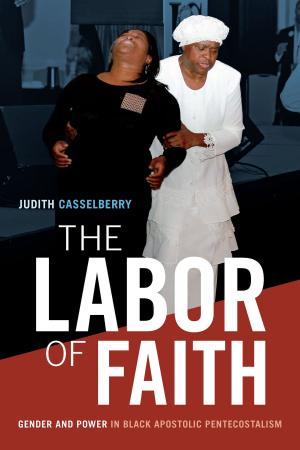The Death-Bound-Subject
Richard Wright’s Archaeology of Death
Fiction & Literature, Literary Theory & Criticism, Black, American| Author: | Abdul R. JanMohamed, Stanley Fish, Fredric Jameson | ISBN: | 9780822386629 |
| Publisher: | Duke University Press | Publication: | April 21, 2005 |
| Imprint: | Duke University Press Books | Language: | English |
| Author: | Abdul R. JanMohamed, Stanley Fish, Fredric Jameson |
| ISBN: | 9780822386629 |
| Publisher: | Duke University Press |
| Publication: | April 21, 2005 |
| Imprint: | Duke University Press Books |
| Language: | English |
During the 1940s, in response to the charge that his writing was filled with violence, Richard Wright replied that the manner came from the matter, that the “relationship of the American Negro to the American scene [was] essentially violent,” and that he could deny neither the violence he had witnessed nor his own existence as a product of racial violence. Abdul R. JanMohamed provides extraordinary insight into Wright’s position in this first study to explain the fundamental ideological and political functions of the threat of lynching in Wright’s work and thought. JanMohamed argues that Wright’s oeuvre is a systematic and thorough investigation of what he calls the death-bound-subject, the subject who is formed from infancy onward by the imminent threat of death. He shows that with each successive work, Wright delved further into the question of how living under a constant menace of physical violence affected his protagonists and how they might “free” themselves by overcoming their fear of death and redeploying death as the ground for their struggle.
Drawing on psychoanalytic, Marxist, and phenomenological analyses, and on Orlando Patterson’s notion of social death, JanMohamed develops comprehensive, insightful, and original close readings of Wright’s major publications: his short-story collection Uncle Tom’s Children; his novels Native Son, The Outsider, Savage Holiday, and The Long Dream; and his autobiography Black Boy/American Hunger. The Death-Bound-Subject is a stunning reevaluation of the work of a major twentieth-century American writer, but it is also much more. In demonstrating how deeply the threat of death is involved in the formation of black subjectivity, JanMohamed develops a methodology for understanding the presence of the death-bound-subject in African American literature and culture from the earliest slave narratives forward.
During the 1940s, in response to the charge that his writing was filled with violence, Richard Wright replied that the manner came from the matter, that the “relationship of the American Negro to the American scene [was] essentially violent,” and that he could deny neither the violence he had witnessed nor his own existence as a product of racial violence. Abdul R. JanMohamed provides extraordinary insight into Wright’s position in this first study to explain the fundamental ideological and political functions of the threat of lynching in Wright’s work and thought. JanMohamed argues that Wright’s oeuvre is a systematic and thorough investigation of what he calls the death-bound-subject, the subject who is formed from infancy onward by the imminent threat of death. He shows that with each successive work, Wright delved further into the question of how living under a constant menace of physical violence affected his protagonists and how they might “free” themselves by overcoming their fear of death and redeploying death as the ground for their struggle.
Drawing on psychoanalytic, Marxist, and phenomenological analyses, and on Orlando Patterson’s notion of social death, JanMohamed develops comprehensive, insightful, and original close readings of Wright’s major publications: his short-story collection Uncle Tom’s Children; his novels Native Son, The Outsider, Savage Holiday, and The Long Dream; and his autobiography Black Boy/American Hunger. The Death-Bound-Subject is a stunning reevaluation of the work of a major twentieth-century American writer, but it is also much more. In demonstrating how deeply the threat of death is involved in the formation of black subjectivity, JanMohamed develops a methodology for understanding the presence of the death-bound-subject in African American literature and culture from the earliest slave narratives forward.















